However, what if I told you there is an easy way to find profitable affiliate niches passively without doing much (or any) extra work?
Well, you’re in luck! Today, I’m going to share what makes a good affiliate niche, how you can use Ahrefs’ SEO Toolbar to find these niches, and some example niches I found with this method.
What makes a good affiliate marketing niche?
To find a good niche, you first have to know what you’re looking for. Ideally, a good affiliate niche has these:
- Your own interest*
- High-paying affiliates
- Low competition
- Enough interest to make it profitable
Sidenote.
*Regardless of how “good” a niche is, you can make almost anything work if you have enough passion and interest in it. There are ways (like creating courses or ebooks) to make more money out of a niche even if it doesn’t have great affiliates. And with enough dedication, you can rank for even the highest-competition keywords.
How much a “high-paying” affiliate pays depends on your goals. Personally, I look for affiliates that pay at least $20-$50 per sale or more. But if you’re just looking for a little side income, a smaller payout may be fine for your goals.
Additionally, I’ll accept a lower payment if the niche has low-competition keywords—meaning if the websites currently ranking in that niche are smaller affiliate sites without huge marketing budgets and a ton of already established backlinks.
Finally, a good affiliate niche has enough interest that it can be profitable. I determine interest by looking at how many people search for the main keywords in the niche per month.
You can research all three of these things using Ahrefs’ Keywords Explorer. But rather than explain how to do that, I’m going to show you how to do this research almost passively—while you’re performing Google searches (which is something you’re likely doing anyway).
Download the Ahrefs’ SEO Toolbar
Instead of manually doing all this research, you can have all the data you need right on the Google search results page any time you do a search.
Click here to add the Ahrefs’ SEO Toolbar to your web browser. It looks like this:
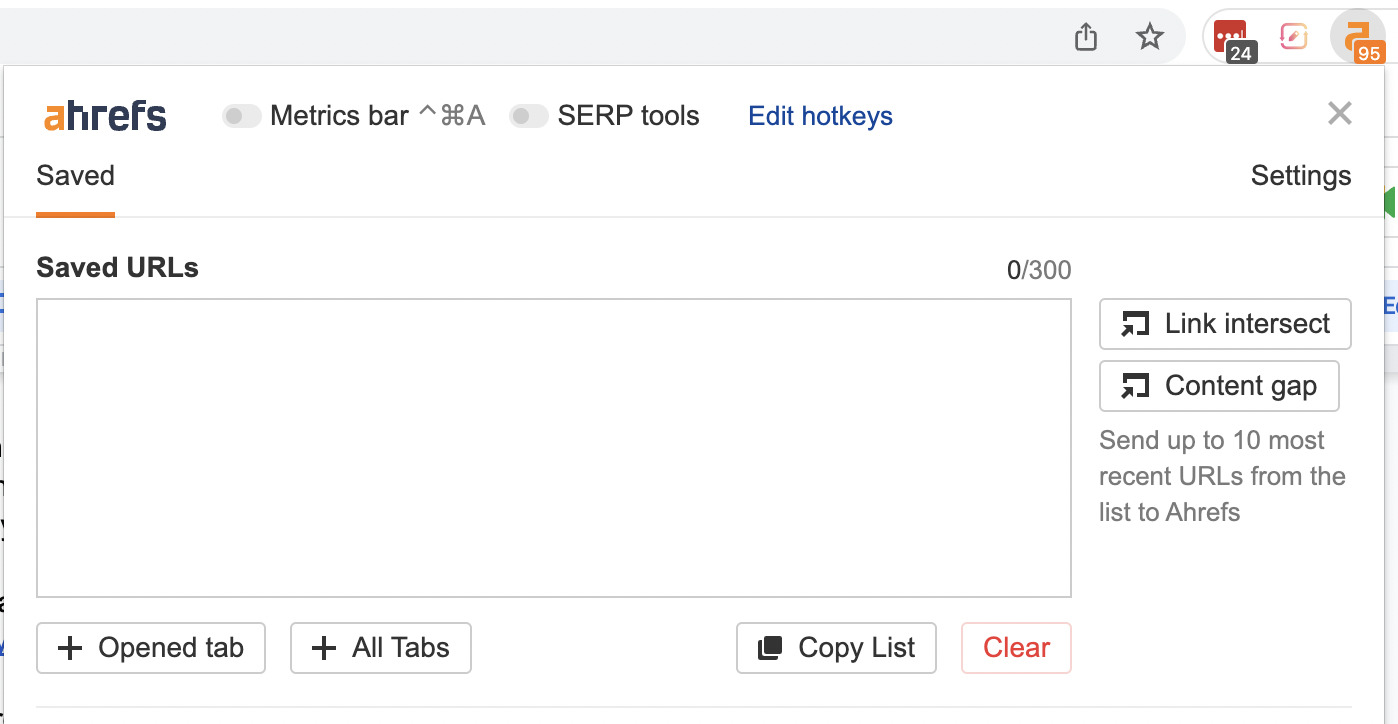
There’s a lot you can do with this fancy little widget. But what we’re most interested in for this guide is the “SERP tools” feature at the top. Go ahead and toggle it on.

Now, when you perform a Google search, Ahrefs data will automatically populate not only for the keyword you’re searching but also for all the webpages ranking for that keyword.
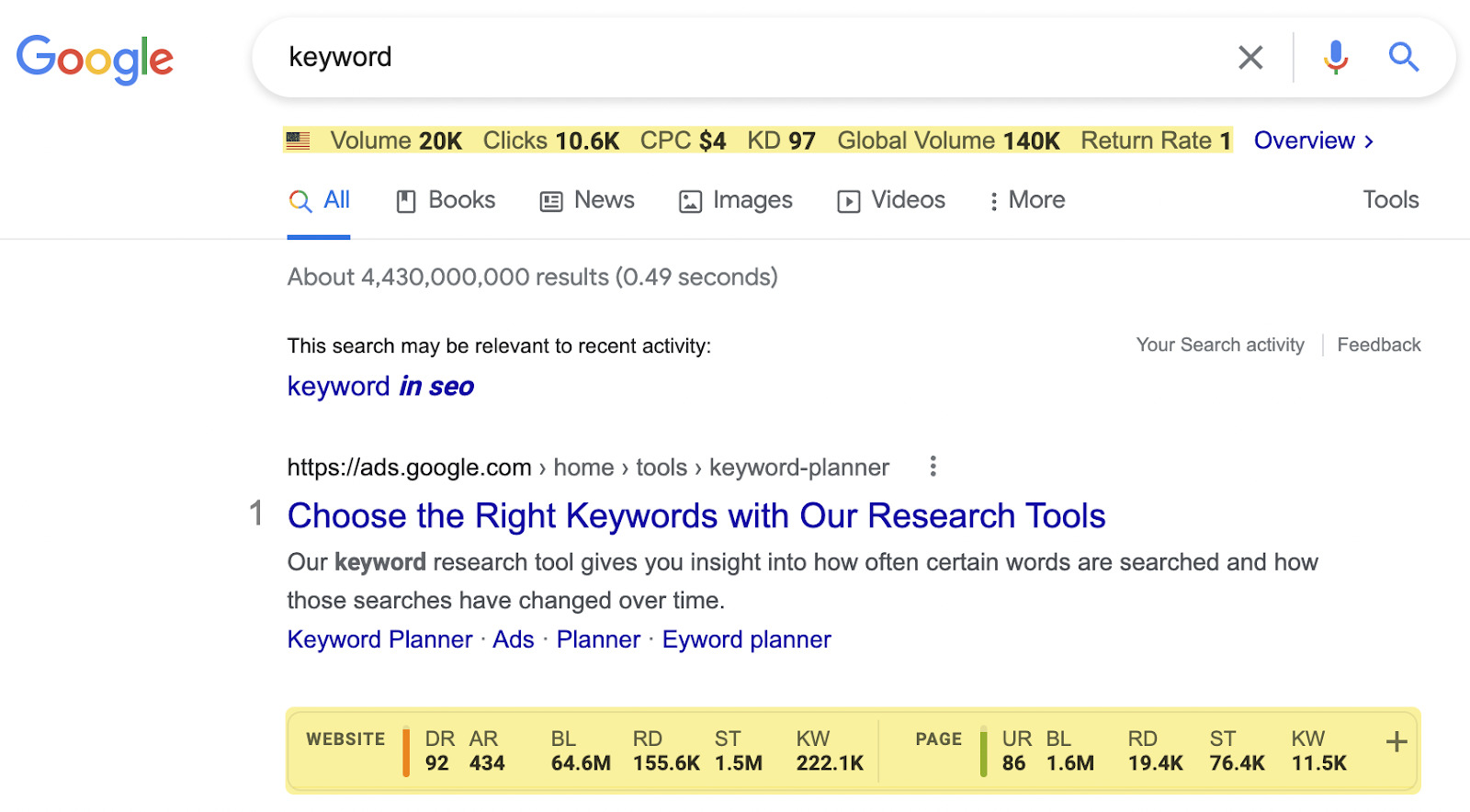
OK, let’s talk about how to use this information to find affiliate marketing niches.
Pay attention as you Google things
Your goal is to make it a habit of looking at this data any time you perform a Google search.
Searching for how to fix your washing machine? Look at the data. Searching for the closest Starbucks? Look at the data. Searching for the best hand soap with no added fragrances? You guessed it—look at the data.
But what are you looking for, you ask?
You’re looking for keywords that have websites with low Domain Rating (DR) scores ranking on page #1. For example, let’s say you Google “best hand soap without added fragrances.”
We can see the second-position result has a DR of just 6.
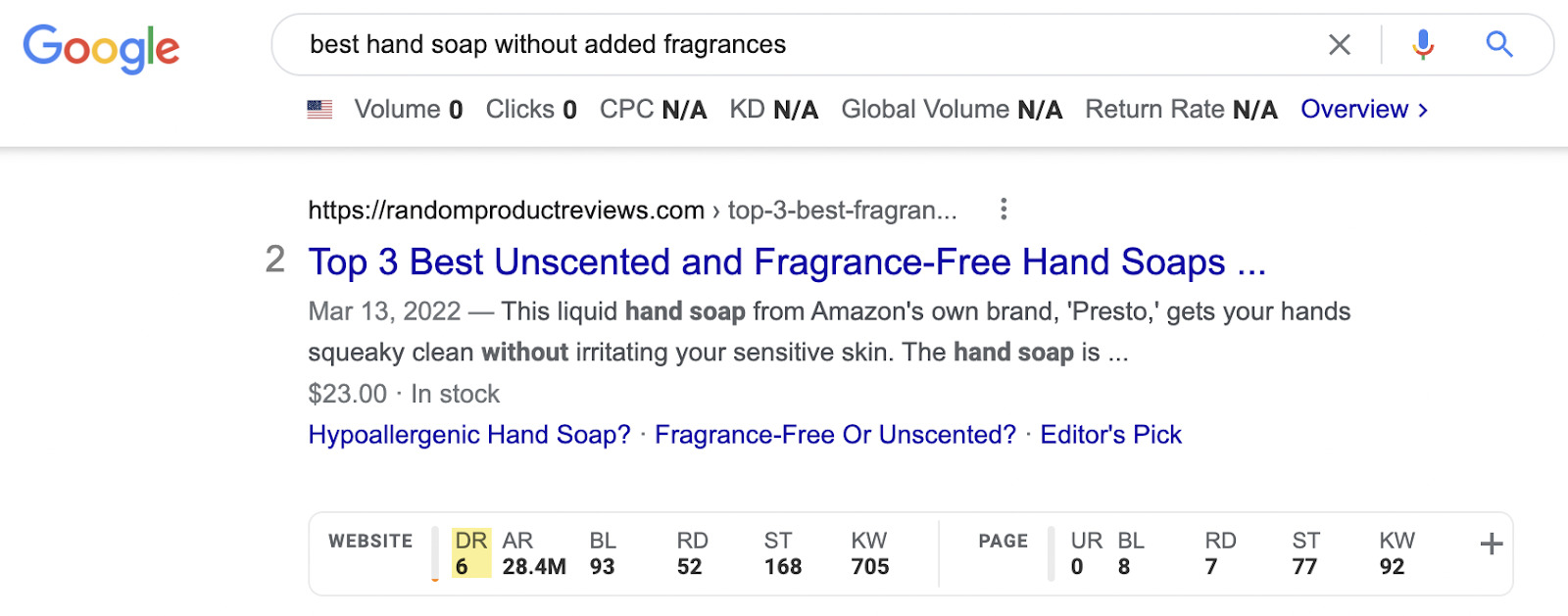
DR is on a scale of 0 to 100, with 0 being the lowest and 100 being the highest. It’s worth noting that this scale is logarithmic—meaning it’s a lot more difficult to go from 60 to 70 than it is from 20 to 30, for example.
If we scroll down, another result has a DR of 11, which is also extremely low. This is a good sign if you want to find easy-to-rank-for affiliate keywords.
Note that DR isn’t a “ranking factor” because it’s just our metric created to quickly assess a website’s authority—it’s not a metric made by or used by Google.
However, seeing a website with a very low DR ranking on page #1 for a keyword tells us that keyword could be easy to rank for even with a brand-new website. So that’s what this technique is based on.
Of course, savvy readers may notice the search volume for “best hand soap without added fragrances” has a search volume of 0. While that doesn’t mean it truly never gets searched for (no keyword data is 100% accurate), it does mean it probably won’t bring in much income.
That’s where the next step comes in.
How to do competitive research on potential affiliate keywords
If you found a keyword with low-DR websites ranking on page #1 but that keyword doesn’t get much search volume, it doesn’t mean all hope is lost.
Simply take those low-DR websites and plug them into Ahrefs’ Site Explorer.
It will show you an overview of all the keywords a webpage is ranking for and an estimate of how much search traffic it’s getting. Click on the number under the Organic keywords section.

From here, you’ll see all the keywords that specific page is ranking for on Google. Looks like it’s on page #1 (position #9) for the keyword “fragrance free hand soap”—which also happens to get 700 searches per month!
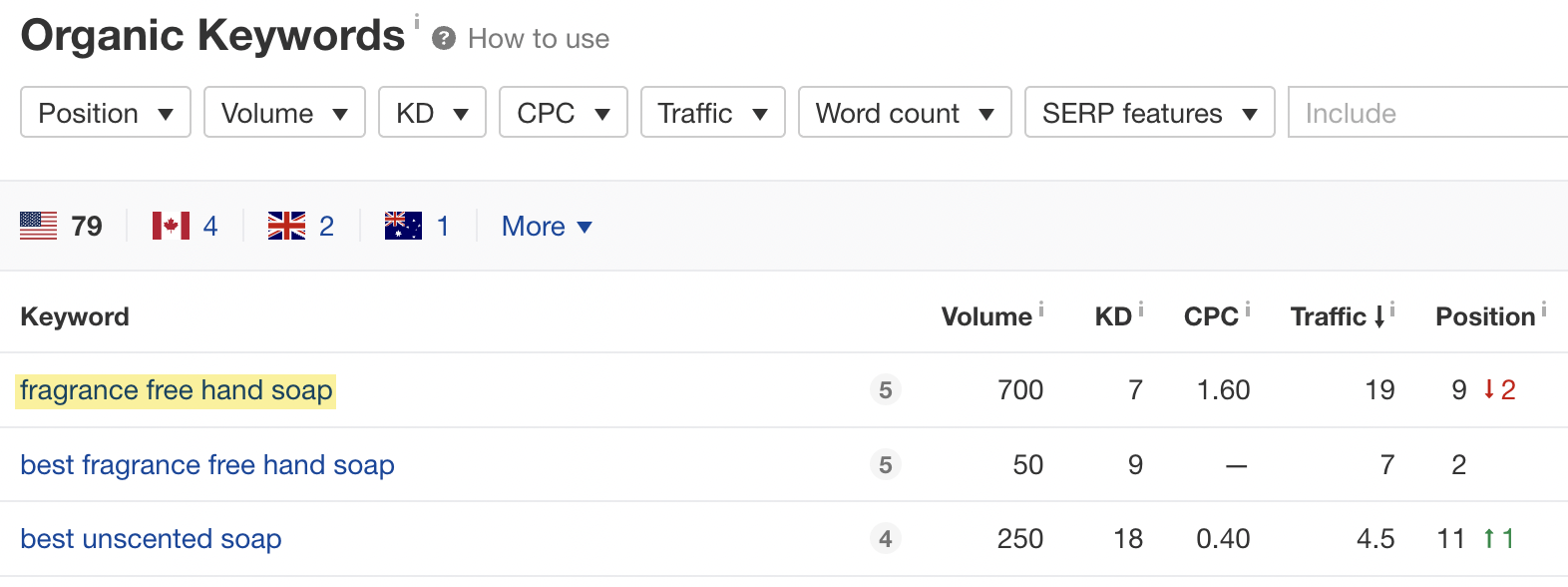
This is a good sign for you, affiliate site creator, because it means you can potentially create a site in this niche and rank for this keyword fairly easily.
But one keyword doesn’t make an entire niche. Luckily, you’ve already uncovered everything you need for keyword research—simply change the drop-down box at the top from “Prefix” to “domain with all its subdomains.”
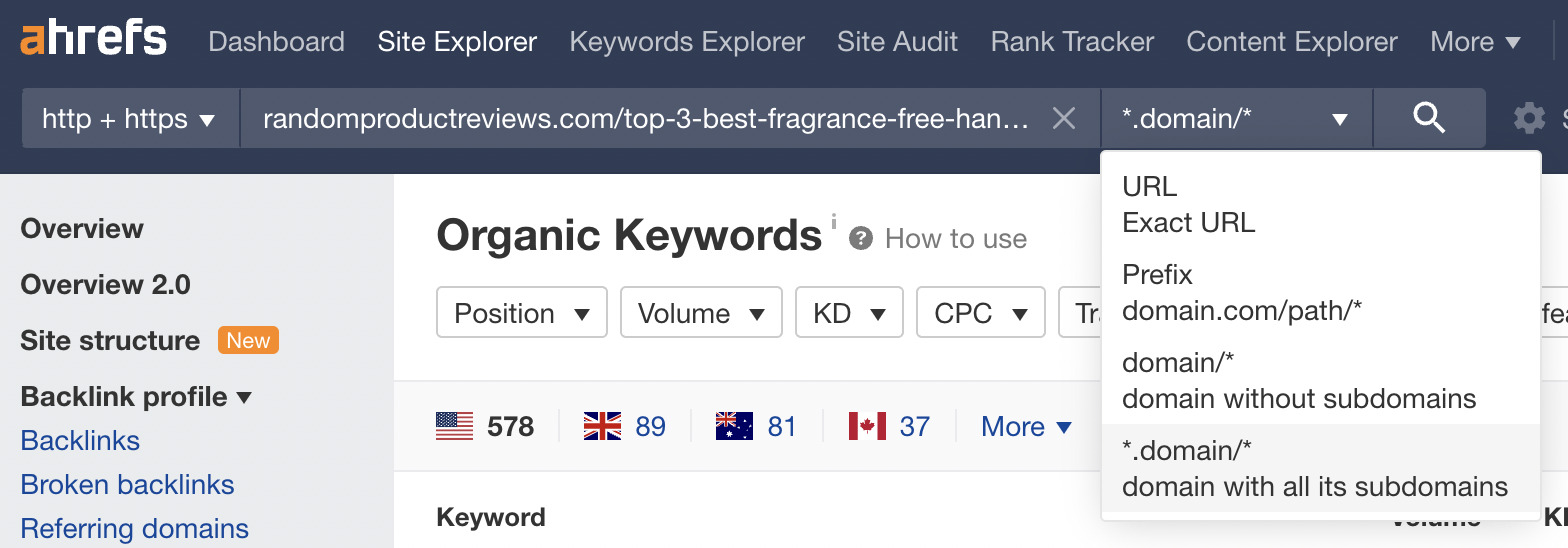
Now you’ll be able to see all the keywords this website ranks for. This means you’ll see all the keywords a low-DR site is able to reach page #1 with.
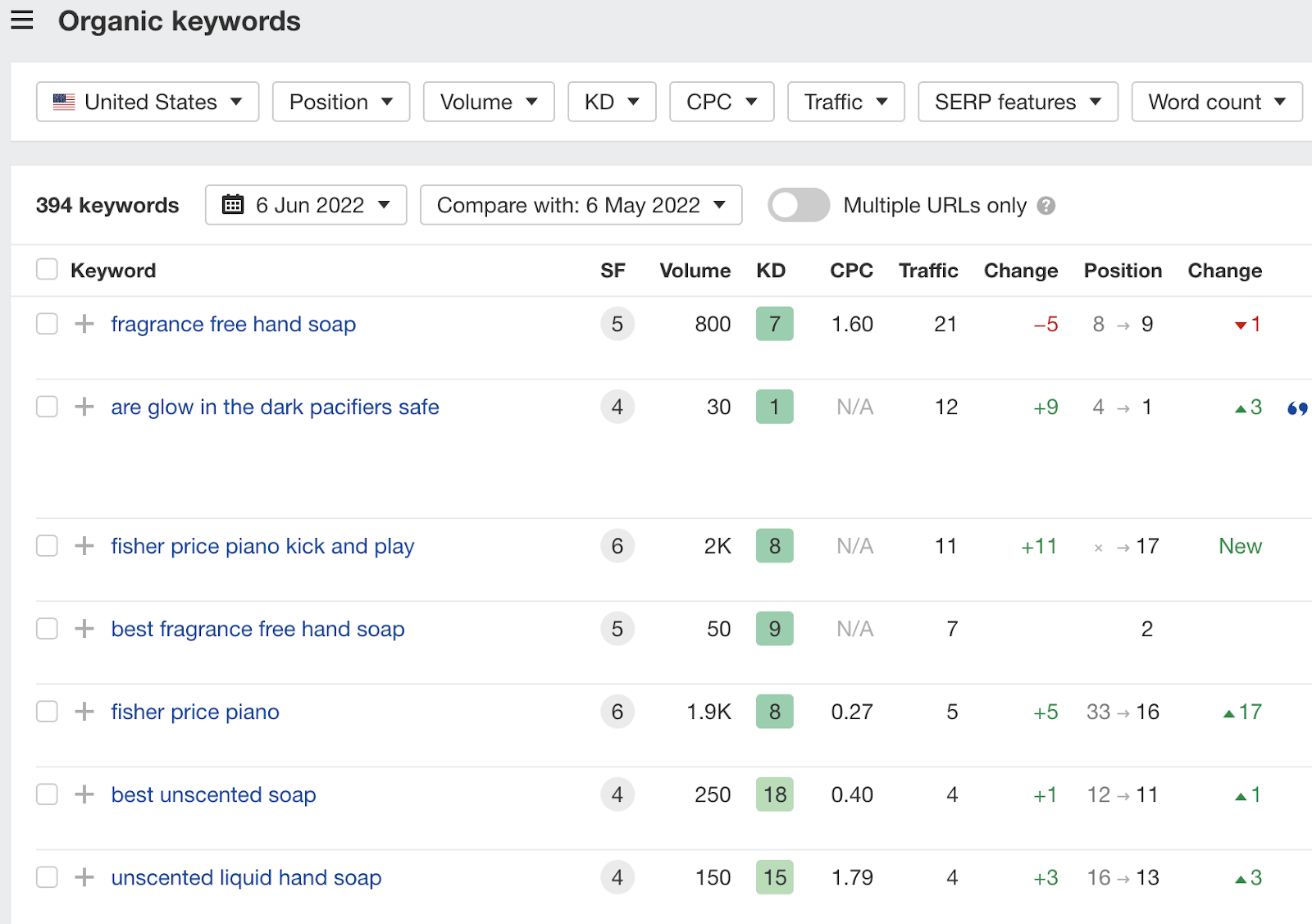
Normally, if you find a website in a specific niche, you’ll find keywords related to that niche. In this case, the website is about random product reviews, so it’s less targeted.
Let’s go back to that Google search page for “best hand soap without added fragrances” and take the other result that has a DR of 11 to see if that gives more targeted data.
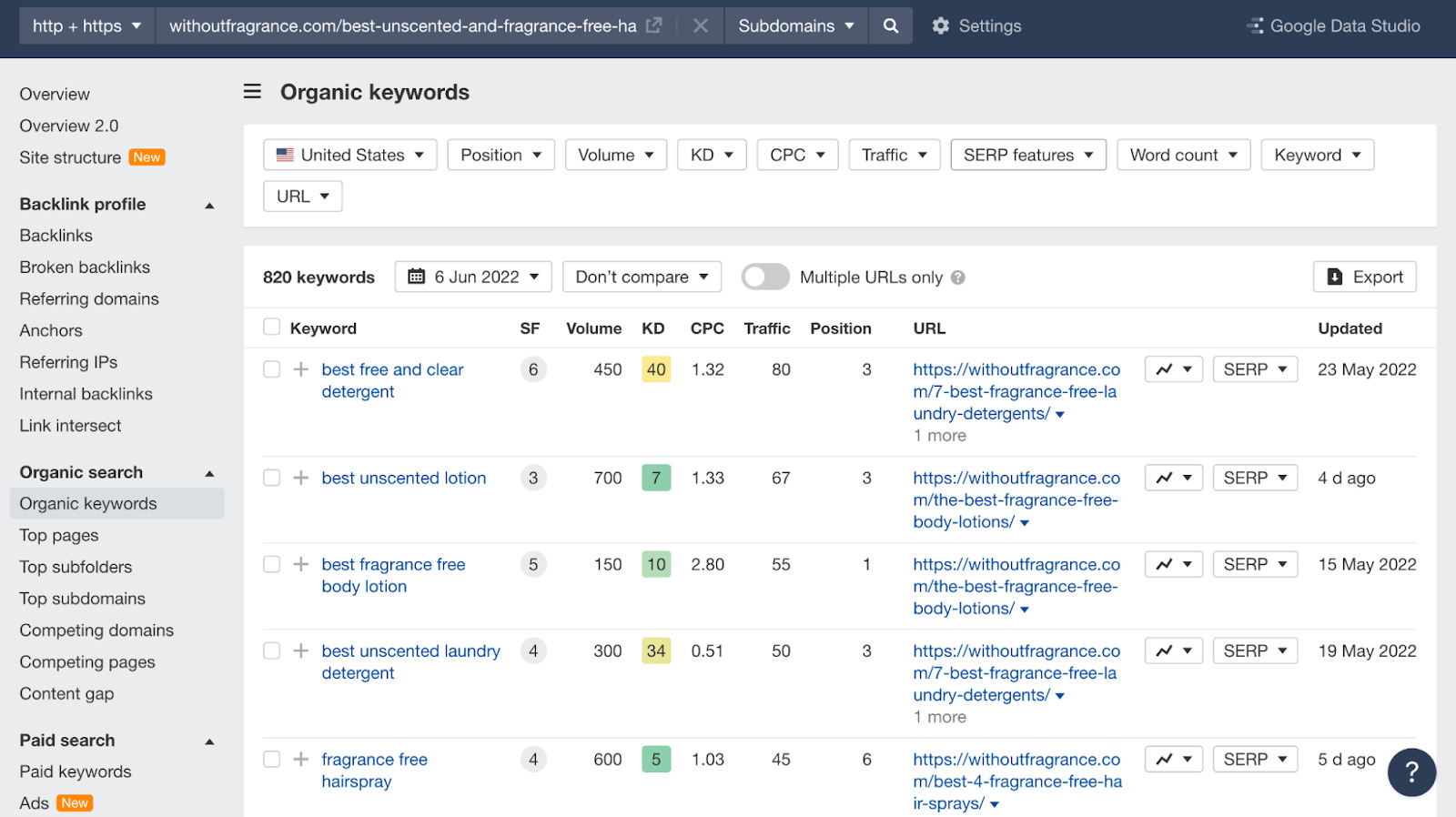
Much better! Now we can see tons of keywords in the “fragrance free” niche that have a low-DR website ranking on page #1.
From here, it’s up to you to decide if this niche is interesting to you or not. But that’s beyond the scope of this article.
Final thoughts
Now you know an easy way to find affiliate marketing niche opportunities without putting in any extra effort beyond what you’ll normally do in a day.
Simply perform your Google searches and make it a habit of looking at the ranking pages’ DR scores. Whenever you see a keyword with low-DR results, you know it’s time to dig in.
Itching for more? Check out some of our other affiliate marketing guides:
